Today we have news that Marvell is acquiring Innovium. Something we get excited about at STH is when the companies we work with get acquired. While it often means we have one fewer company to work with, it also means that the folks we have worked with over time get an exit that values their efforts. The Innovium team has been working for years to break into the data center switch ASIC market that has been dominated by Broadcom. We started covering Innovium back in 2019 with Innovium TERALYNX 5 6.4Tbps Switch Chip Launched. This year, we started reviewing Innovium products.
Marvell Acquiring Innovium for Switch ASIC
Getting into the reasoning behind the deal, this is one that is much more straightforward than some others we have covered. As a quick background, Innovium makes switch ASICs which one can think of as the chips that move data around in a data center switch. Innovium’s current switch ASIC lines are the TERALYNX 5, TERALYNX 7, and TERALYNX 8.
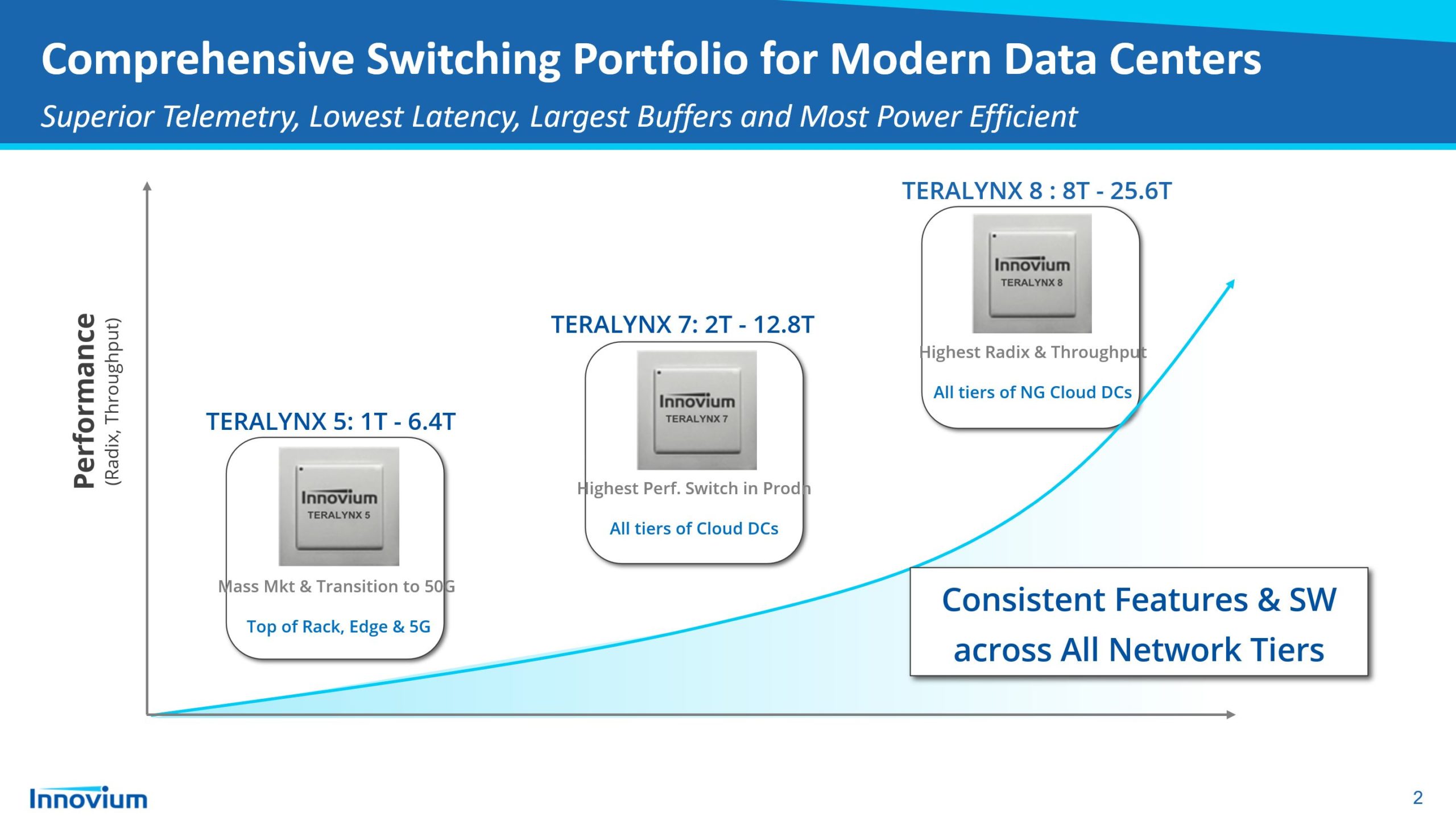
The basic idea behind making switch ASICs is that companies such as traditional players like Cisco and Arista can build switches quickly without having to spin their own silicon, especially if there is a particular market need. For hyper-scale organizations, especially those looking to deploy SONiC or another internally developed network operating system (NOS) switches can be produced at lower-margin (less expensive) OEM/ ODM vendors like EdgeCore, Celestica, Delta, QCT, and others. The market for these switches, especially at the higher-end deployed by hyper-scalers, is growing rapidly. Innovium is the primary competitor to Broadcom and has started to capture share in its targeted market (Broadcom is much larger across its incumbent portfolio to be clear.)
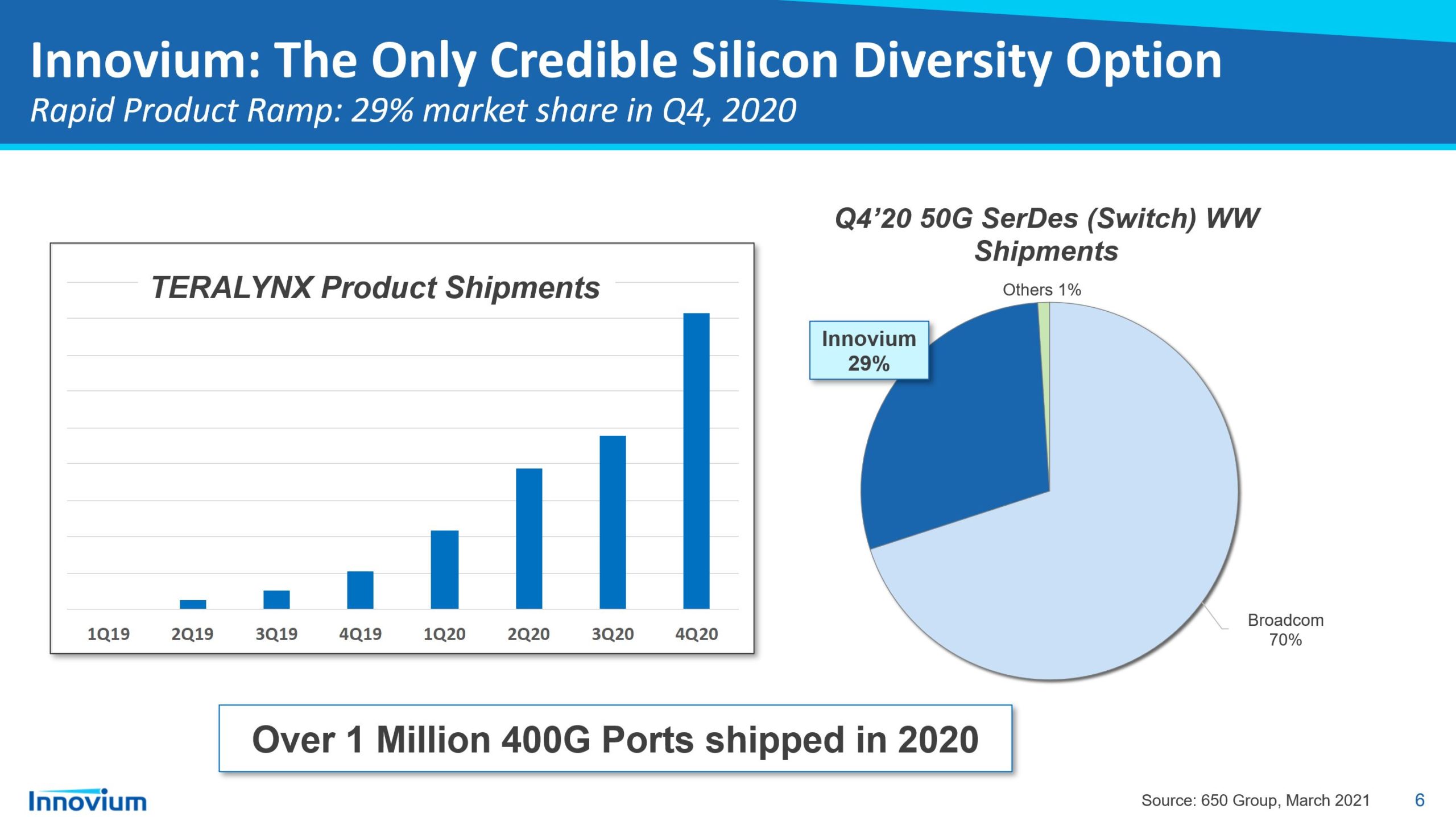
Innovium was able to innovate on building a switch architecture that is high performing, scalable, programmable, and also observable. Breaking into a market dominated by Broadcom is not easy and one needs a better product to do so.
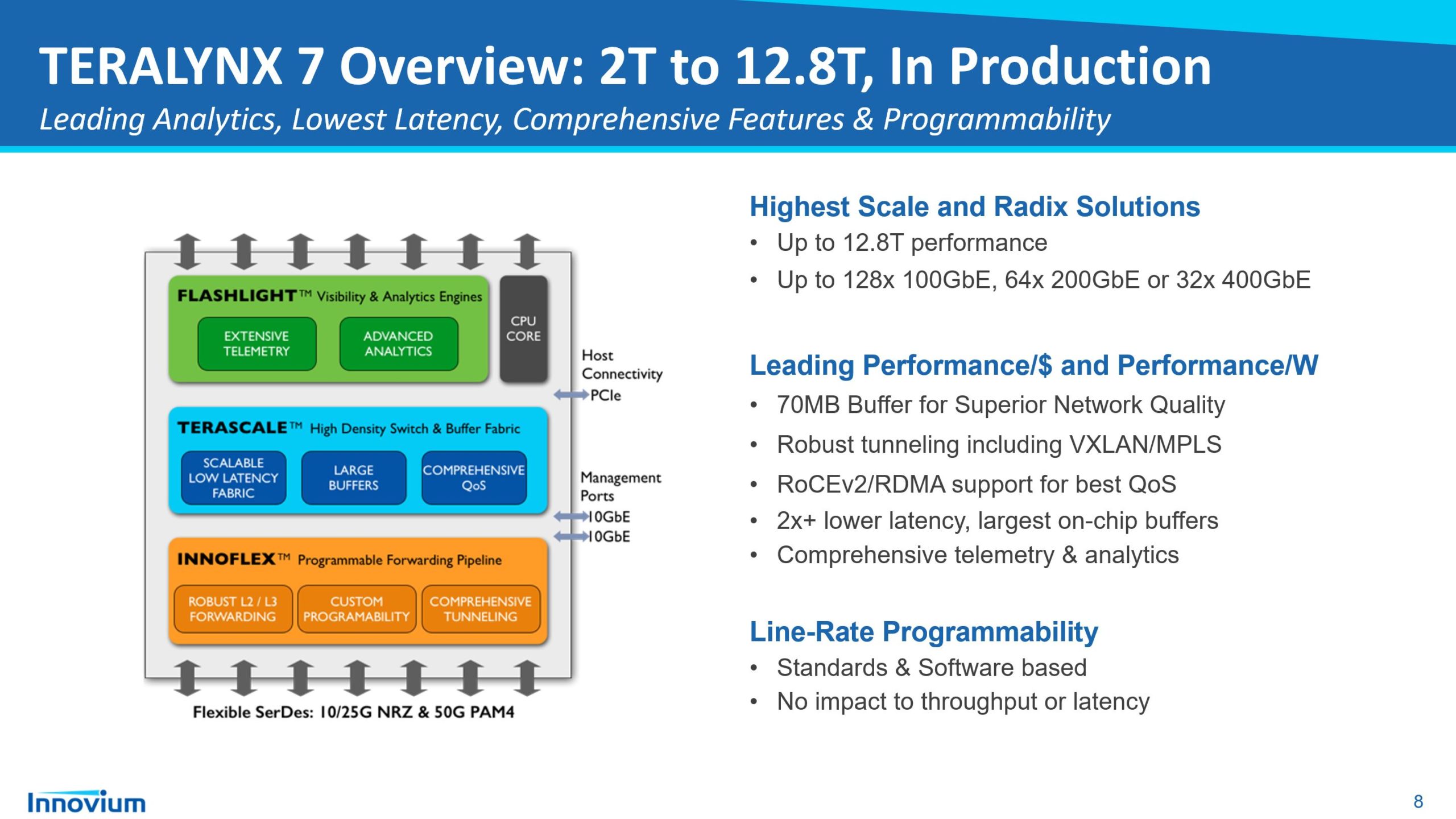
We actually did a teardown of an Innovium Teralynx 7 32x 400GbE switch in Inside an Innovium Teralynx 7-based 32x 400GbE Switch with a video here:
For Marvell, if we go beyond the marketing spin, it did not have a high-end switch line to compete with Broadcom at the 32x 400GbE switch ASIC level and beyond. We noted this in our Marvell Prestera 7K Edge and Access Switch Chip Launch a few months ago. At the same time, Marvell has been working to address an important part of this market’s adjacencies when the Marvell-Inphi deal was announced. Inphi has technology that will be needed in the near future as we get to co-packaged optics which the hyper-scalers are driving. Marvell, through Inphi, has 400G and 800G solutions for transmitting data, but it needed the switch ASIC side to offer a more complete solution. Here was the video covering the Marvell-Inphi deal (along with AMD-Xilinx which has not closed yet.)
For its part, Innovium started selling its Innovium TERACertified switch solutions concept where it would validate platforms and Marvell may continue this effort with an expanded portfolio.
Final Words
For Marvell, this is a great step forward. If it wants to compete with Broadcom at the higher-end of the switch ASIC market, it needed something. Innovium has been working to secure wins in hyper-scale data centers and has embraced open networking/ SONiC so it is in many ways the piece that Marvell needed. After many years of Broadcom dominance (Broadcom’s lines have been the Intel Xeon E5-era of the merchant ASIC market for years) it is great to see Marvell putting together a strong competitor along with Intel and even NVIDIA getting into the action. Although AMD is focused on the Xilinx acquisition, Marvell is basically building the portfolio that AMD will need to have if it wants to compete on CPU, GPU, and networking in the data center.

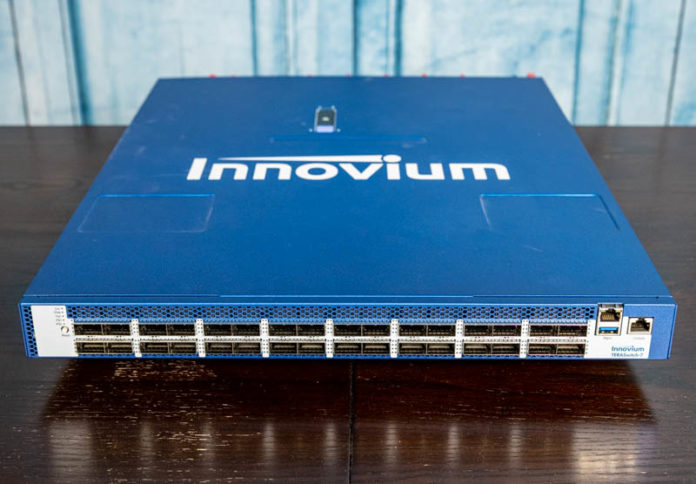
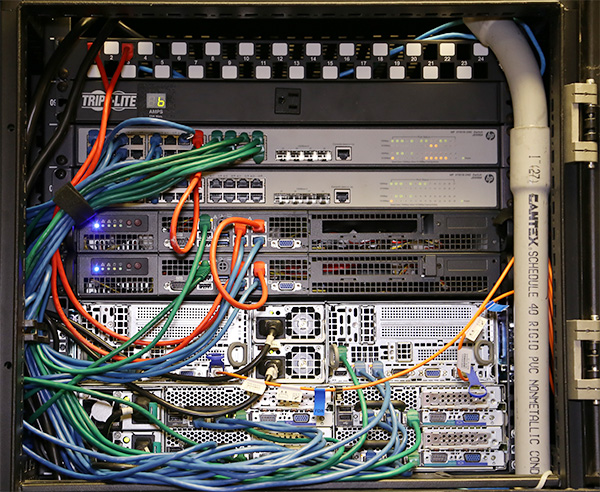
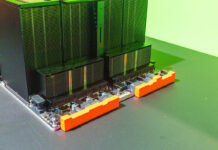
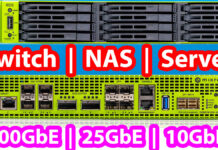
Allow me to be not-so thrilled about yet another acquisition. Having duopolies and oligopolies everywhere is not too conducive to healthy competition.
When the customer orders are increasingly concentrated into a few powerful players (the hyperscalers) it’s only natural that the suppliers consolidate else they get bullied.
Its not like I approve of the state of hyperscalers either.
Facebook, Alphabet, Apple and Amazon could all do with a Bell System or Standard Oil sort of breakup, given how big they have grown through anti-competitive practices. This is not the first industry that has seen the rise of vertically integrated monopolies that get scary big, I just hope that history does indeed rhyme.
It depends on what Marvell will do with the aquisition. If they continue their products fine. If it’s a catch + kill move (i.e. take over a promising smaller company and kill their product line) to ensure there’s no competition, then it’s a continuing sad state of affairs. Remember Aquantia? They made excellent Nbase-T adapters. Now that Marvell owns Aquantia, you can’t buy their SFPs & adapters, Marvell still sells their crappy own 88×3310 adapters – and the consumer is poorer for it